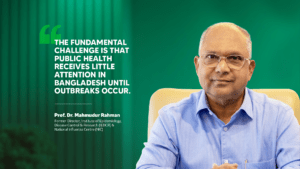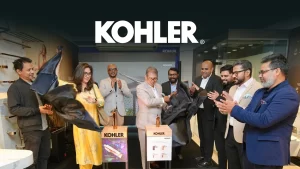Q. Let’s start with your early life and what inspired you to pursue a career in foreign service? Were there any early influences that shaped your interest in international relations?
I was born in British India, in Calcutta. Later, On Partition, my father decided to move to Pakistan and where he had to set up the new office of the Labour Commissioner in Dhaka. There was no government accommodation available initially and he had to live 6 months in a houseboat. My mother and I and my younger brother traveled by steamer from Calcutta to Narayanganj about 6–7 months later, once my father found a place to stay. There was no electricity at the time, but gradually, East Pakistan—later Bangladesh—developed.
I studied at St. Gregory’s School in Dhaka, then Notre Dame College, and later pursued my honors degree at Dhaka University, completing it in 1965. I could not complete my MA in 1966 as I opted to take the Central Superior Services examinations that clashed with the several times postponed MA examinations.
My father wanted me to join the civil service, but it wasn’t my first career choice. In college, I initially wanted to become a doctor or an engineer, so I took science. However, my teacher at Notre Dame College believed that my true genius lay outside science and encouraged me to pursue writing. I then shifted to English literature and aspired to study world literature further.
Despite my initial reluctance, I took the civil service exam and passed. The viva was very tough. I wanted to join the foreign service, but there was pressure to place me in the civil service instead. I firmly insisted on the foreign service. I believed the civil service had become a tool of oppression and suppression of common people, and I said so to the interview board. I was quite sure that this stance might cost me my selection. However, I ended up securing the second-highest viva score. I was the first from East Pakistan in my batch (of 1967) in the foreign service, and it was even reported in the newspapers.
Several decades later I pursued my MA at the University of Maryland, College Park. I took early retirement from the foreign service to focus on other pursuits, including writing.



Q. Throughout your distinguished career, you have held key diplomatic positions in multiple countries. Looking back, what would you consider some of the most defining moments or milestones in your journey as a diplomat?
My first posting was in Tehran. I was informed of this even at my Walima reception when the Director of Personnel announced it. As a top-ranked officer, the expectation was to be posted in Washington, Paris, New York, or London. However, moments arise in life that shape one’s destiny. Since it was an order, I accepted it, and it turned out to be the best thing that happened in my career.
In Tehran, I learned my trade-craft from the ambassador, who taught me the essentials of diplomatic work and the values of my role. He emphasized that as an officer, I was paid to make decisions. If I avoided making decisions, I was not earning my pay. He also instilled in me the principle of making decisions without fear or favor. He reassured me, saying, “Don’t fear me; I am not an ogre. Give your decision, send it to me. I will agree or disagree—that is my role, but you must do what is within your responsibility.” I later tried to instill this mindset in younger colleagues, though it has faded over time.
My Tehran posting was prestigious as Iran held significant power and had a close relationship with Pakistan. I learned how to handle state visits and was given responsibilities far beyond my experience, which shaped me. A senior colleague also taught me how to engage with Indian diplomats. He advised that while India was reluctant to interact with us, understanding an opponent required direct engagement. He said, “Know your enemy. You will not understand them if you don’t mingle with them.” Simply by meeting, listening, and observing their rhetoric, I learned valuable insights. Diplomacy, after all, requires the behavior of a gentleman.
During the Liberation War, I was still in Tehran. Pakistan and Iran had very close relations, and as a diplomat, once issued a residence visa in Iran, one could not leave without an exit visa. When the war started, the particulars of three officers, including myself, were sent to the Iranian Ministry, instructing that if we attempted to leave without an exit visa, we would be arrested. I arrived in Bangladesh on March 24, 1972. Tehran was not my choice, but it became the foundation of my career.
Many of my postings happened unexpectedly. My first posting to India was as Deputy High Commissioner. I had just returned from London headquarters and expected to stay in Dhaka for at least three years. The biggest challenge for diplomats is moving frequently while raising children. My children had to change schools four times in three years— from Bonn, then Bangkok, then moved to London, then Dhaka, where we had to change schools twice within a year and a half. I had looked forward to staying in Dhaka, where I was serving as Director General for the United Nations and Economic Affairs, as well as concurrent Director General for Policy Planning and Research. However, after just a year and a half, I was told to leave for New Delhi. This was in 1984.
In 1984 when I was told I could not stay at headquarters. I considered resigning, but the Director General visited my home and convinced me otherwise. In June 1984, I was posted as Deputy High Commissioner to New Delhi. The allowances in New Delhi were poor, but I began to understand India and our region better. Though I had been reluctant to go, I realized the post gave me valuable insights. I served as Acting High Commissioner on several occasions. In fact, I arrived in New Delhi in June 1984, and just months later, Mrs. Indira Gandhi was assassinated while I was Acting High Commissioner. Several significant events followed.
From India, I was transferred to Beijing, where I worked closely with the ambassador and gained insights into the power struggle between two regional rivals. From there I was posted to Tehran in 1991, in a senior position as Ambassador. Returning to Dhaka, I became Additional Foreign Secretary for SAARC, which deepened my engagement with regional affairs.
I was later posted to South Africa as High Commissioner. By then, I had already served notice to resign from the ministry in 1995. In 1996, I was persuaded to stay and complete negotiations with India. At that time, I had also received a fellowship offer from a prestigious American university, which aligned with my promise to my father to complete my education there.
In South Africa, I had the privilege of meeting Nelson Mandela multiple times—an uplifting experience. After opting for early retirement from service there, I felt I had achieved enough. I pursued further studies, but I was later called back from retirement to take up the role of Ambassador to Washington. This was a political assignment, but I had no interest in returning to the service. I had wanted to move into academia instead.



Q. Having served in various key diplomatic positions across different countries, how did your experiences vary across these postings? Were there any particular challenges or achievements that stand out from your time in these roles?
Before going to South Africa, the Prime Minister set one condition: I had to bring Nelson Mandela to Bangladesh. I said I would try, but the PM insisted—”No try, you have to.”
When I arrived in South Africa, I met Mandela, and to my surprise, he agreed. Before I even presented my credentials, we had a long conversation that stretched to almost an hour. Suddenly, he said, “I want to meet your wife. I like to meet the women behind great men.” I almost collapsed in shock.
I was able to pursuade him to include a 2-day visit to Bangladesh combining it with an earlier scheduled official visit to India. In Bangladesh President Mandela met with all the leaders. Even after returning to South Africa, whenever we met at public gatherings, he would tell me, “You need to stop the fighting between the two ladies of your country. Bangladesh must be built together.” He deeply cared about our nation.
I took early retirement from the service after completing nearly two years in South Africa, in 1998 December, in order to join the university of Maryland in January 1999.
But, I was called back out of retirement to harness in government, interrupting my studies at the University of Maryland, to be Ambassador to the United States in early 2001. Presenting my credentials to George W. Bush, after earlier having presented them earlier in my career to Nelson Mandela, this felt like the biggest anti-climax.
My Washington assignment was another turning point. I was reluctant to disrupt my growing academic career, but my university encouraged me to take the opportunity, assuring me that I could return after my posting.
Washington, as the world’s political capital, was an eye-opening experience. I gained access to influential academic circles. Then, 9/11 happened on my watch. That very day, I was scheduled to meet President Carter, as he was coming to Bangladesh to lead an election observer team. When I arrived at the Carter Center, the entire place had been evacuated—except for him. He had stayed to meet me, a remarkable display of courtesy.
In my conversation with him, I said: “It seems someone has thrown down a gauntlet for you to pick up. Please don’t pick it up.” He looked at me thoughtfully and said, “You’ve said something important. I will convey this to President Bush.”
After my Washington posting, I returned to academia for eight fulfilling years. I pursued my MA, surrounded by students the same age as my children, and later, I completed my course work for PhD and advanced to doctoral status. It was incredibly tough, but I persevered. Eventually, I returned to Dhaka to collect data and conduct my fieldwork for competing my thesis – but that was not to be.
During this time, I began working on my thesis. But soon, after about five months, I was asked to take up assignment on contract as High Commissioner, to India. During my assignment to Delhi, I questioned myself why we couldn’t achieve the kind of regional cooperation that ASEAN and the EU had. I realized that building strong relationships with our neighboring countries was essential for progress.
Incidentally, my draft doctoral thesis had focused on the role of civil society in consolidating democracy. In fact, Chapter 2 of my just published book titled “The Tortuous Evolution of South Asian Regional Cooperation” is based on my thesis prospectus.



Q. Beyond your diplomatic career, you’ve been actively involved in many advisory roles. How do you see your role in shaping policy discussions and contributing to Bangladesh’s international engagement outside of traditional diplomacy?
I played an advisory role at the University of Maryland, helping design a project for Afghan refugees. About 7.7 million refugees were returning from Iran and Pakistan, and we worked on adapting rehabilitation tools to help them reintegrate into their own communities. This project was in partnership with BRAC. However, after six months, the U.S. government said they lacked funding, so USAID shifted its focus to providing immediate aid instead.
Following my diplomatic tenure, the World Bank persuaded me to join them as advisory consultant to their South Asian economic integration program. The day I left the embassy, I returned to Dhaka and joined the World Bank as a consulting advisor. But I believed that if regional cooperation was to progress, it had to move through Delhi. I thought being stationed in New Delhi and leveraging my connections was key to making meaningful improvements to the regional cooperation agenda.
Q. Bangladesh has been making significant strides in global trade and economic diplomacy. In your view, what are the key opportunities that Bangladesh should capitalize on to strengthen its presence in the international market?
Regime and generational changes have taken place in Bangladesh and are happening globally. We must consider our location, size, and economy. With India and Myanmar as neighbors and a population where nearly 50% are youth, Bangladesh has a unique demographic advantage. However, if instability arises, its impact will extend beyond our borders due to our geographic, ecological, and geopolitical ties with India. Geography is inherently linked to geopolitics, shaping our influence on other countries.
Another key factor is perception—how leaders view their people, how people perceive their leaders, and how nations view each other. Political dynamics are fluid, and a one-dimensional approach won’t work. We must build internal consensus and end internal conflicts. Otherwise, our weaknesses will be exploited, not just by India but by other nations as well.
One of my most significant contributions was securing the Land Boundary Agreement with India—an issue that had remained unresolved since 1952. Before finalizing the agreement, I had to sign 11,000 strip maps in quadruplicate to ensure there was no room for future disputes. Without this formalization, any party could have challenged the agreement.
Our priority must always be Bangladesh. We cannot change our neighbors or our geography, so cooperation is essential. We must engage with India with self-respect and dignity. At the same time, we must acknowledge the realities of India’s size—its population, defense forces, GDP, and technological strength—compared to ours. This calls for a pragmatic, realistic, and level-headed approach, free from emotion.
Bangladesh must uphold its strategic autonomy and maintain active neutrality to navigate regional and global challenges effectively.



Q. What advice would you give to young individuals aspiring to build a career in diplomacy? What qualities do you think are essential to becoming an effective and influential diplomat in today’s world?
To contribute meaningfully to foreign policy, one must have both knowledge and the courage to voice one’s perspective. Everyone observes, learns, and understands the world differently. Without seeing the full picture, we risk only solving fragments of the puzzle. Mastery of the craft requires developing analytical skills, understanding geography, and thinking critically. It’s not enough to rely solely on academic learning—one must think independently, challenge written words, and trust one’s own judgment. If you don’t speak up, you will always be sidelined. Unfortunately, due to the politicization of bureaucracy, we have lost this essential trait.



Q. Share three truths you’ve learned from life.
Be truthful to yourself—stay true to your beliefs and conscience.
Respect the history you inherit—whatever shaped you is part of a larger historical process.
Always remain open to learning—no one knows everything, and there is wisdom to be gained from others.
Life has been my greatest teacher, and now, I want to share what I have learned with others.






